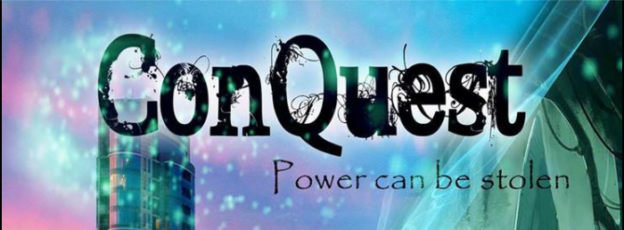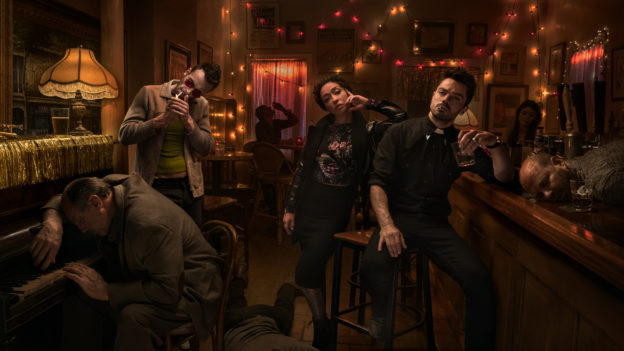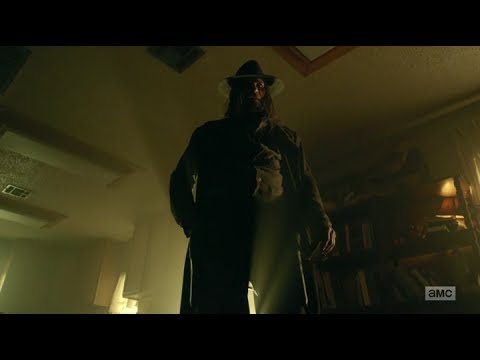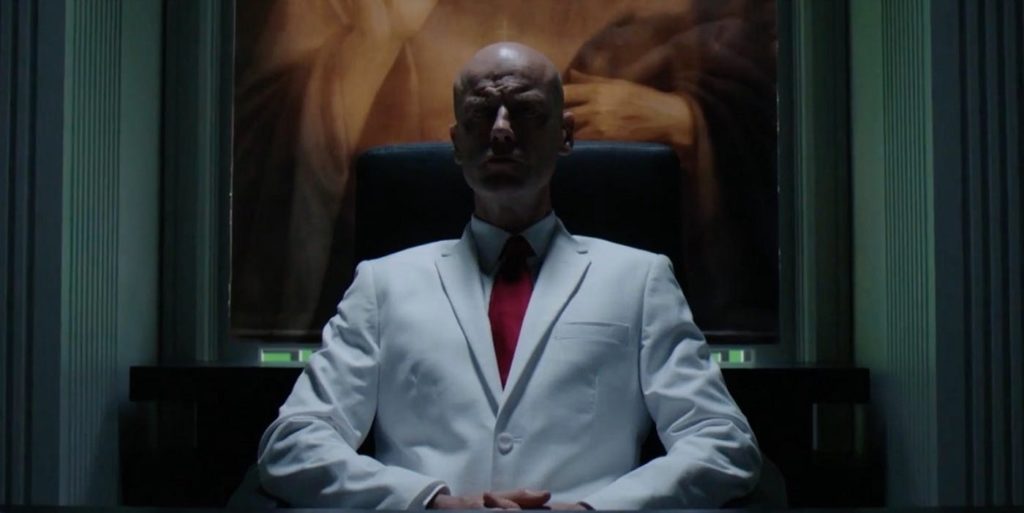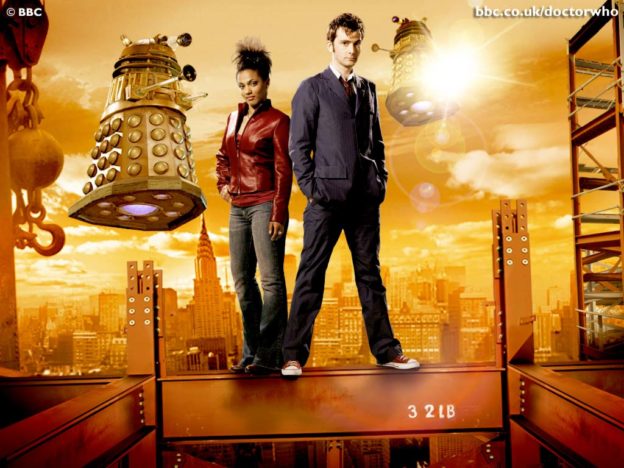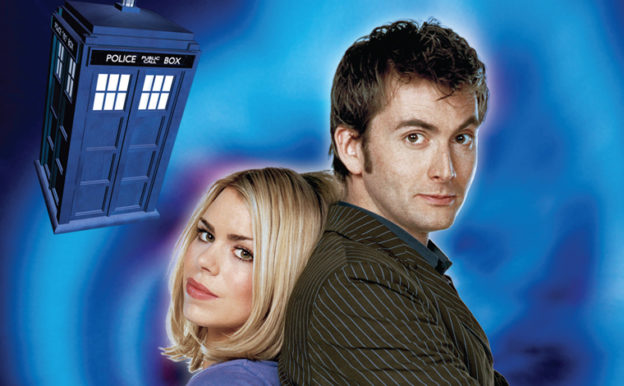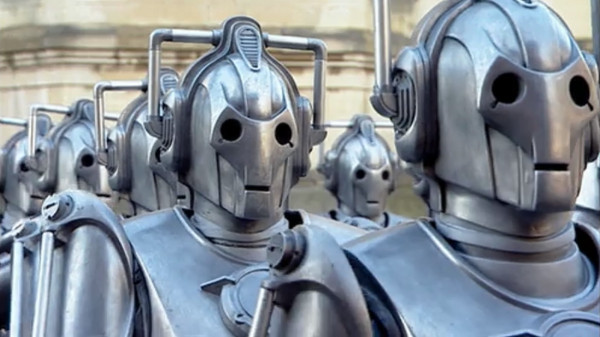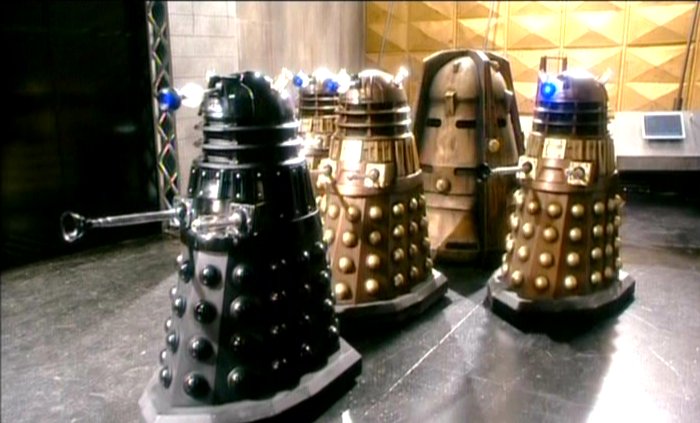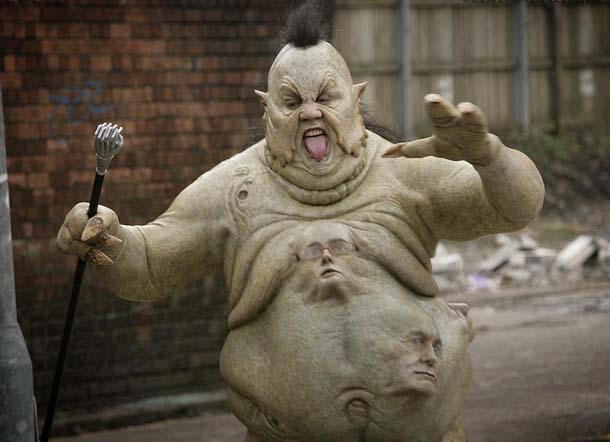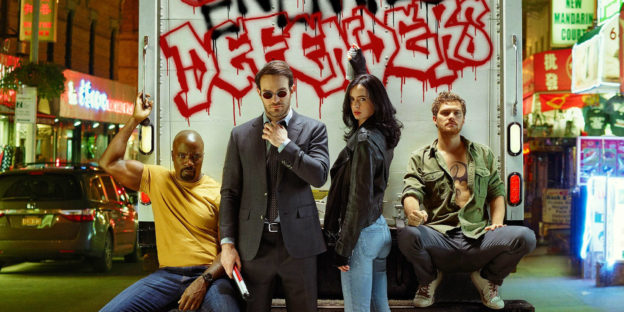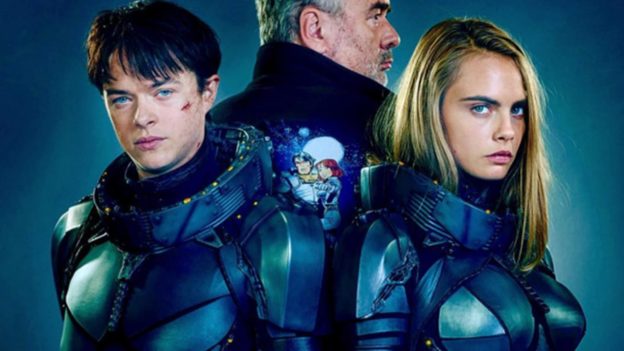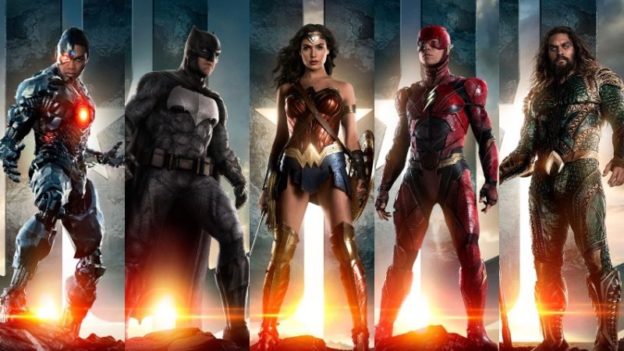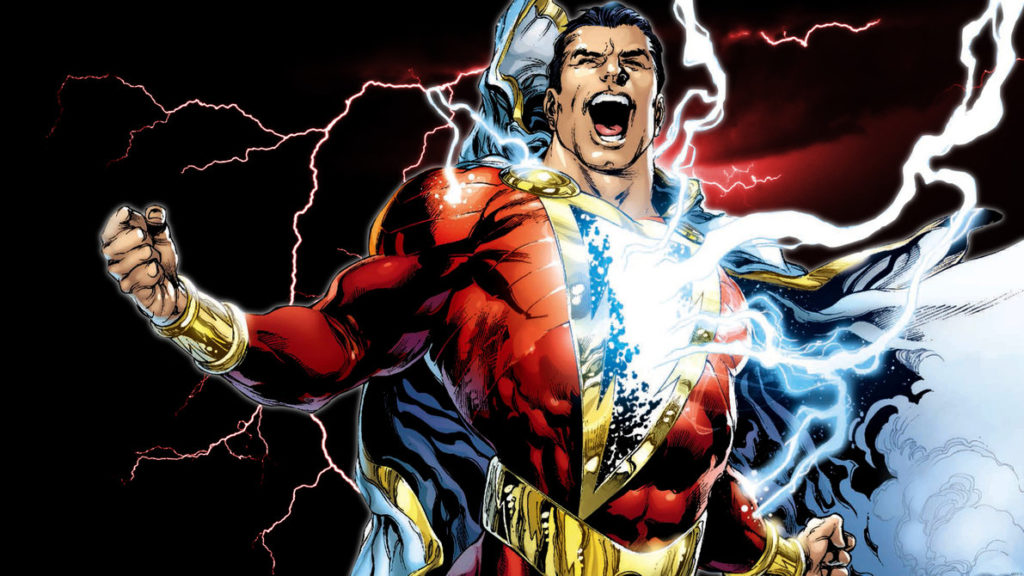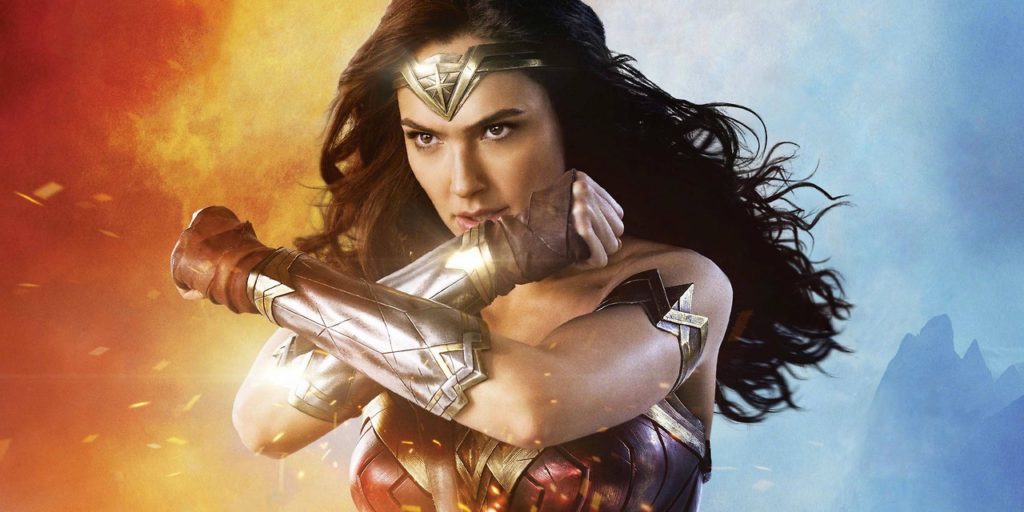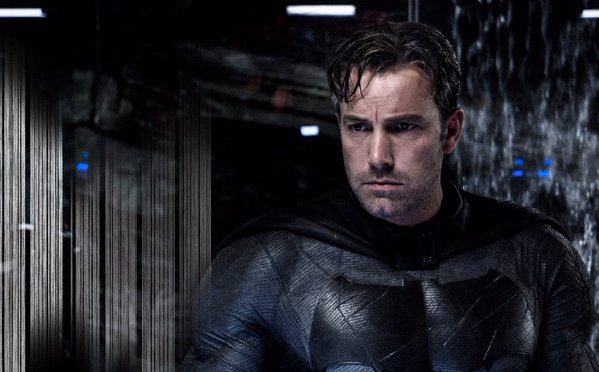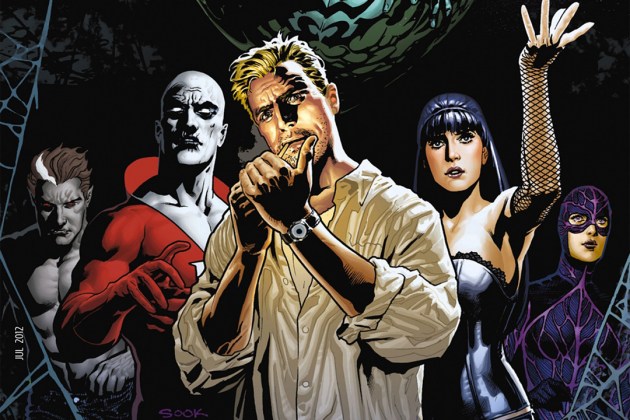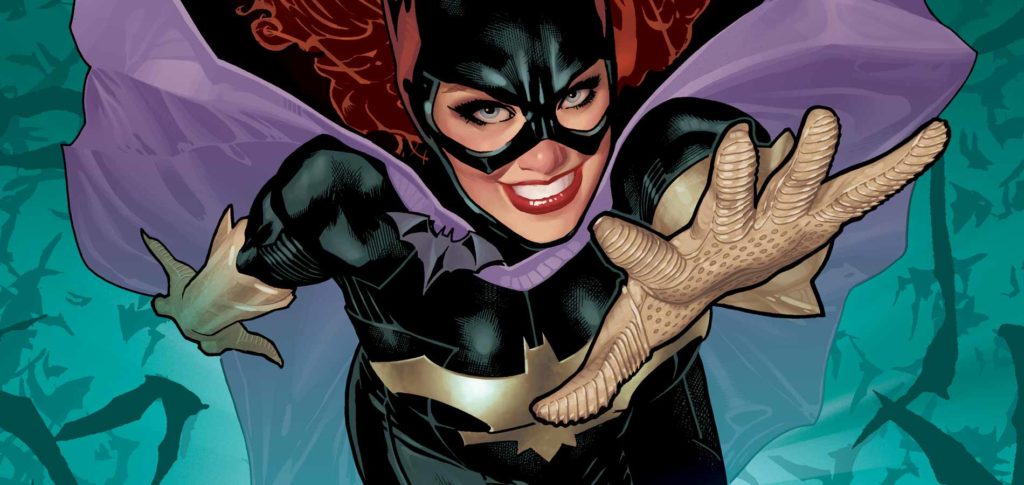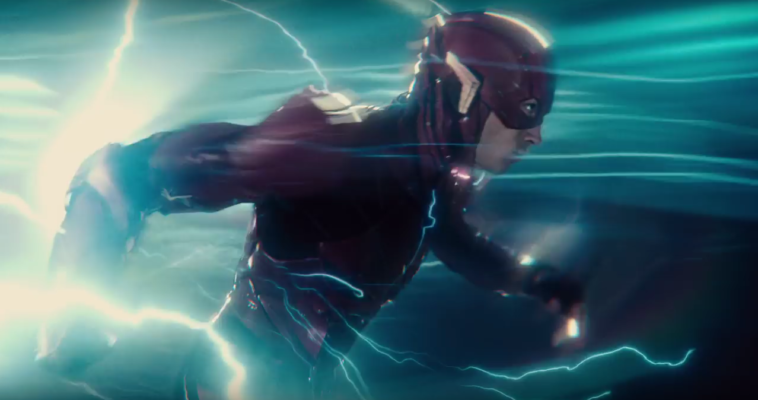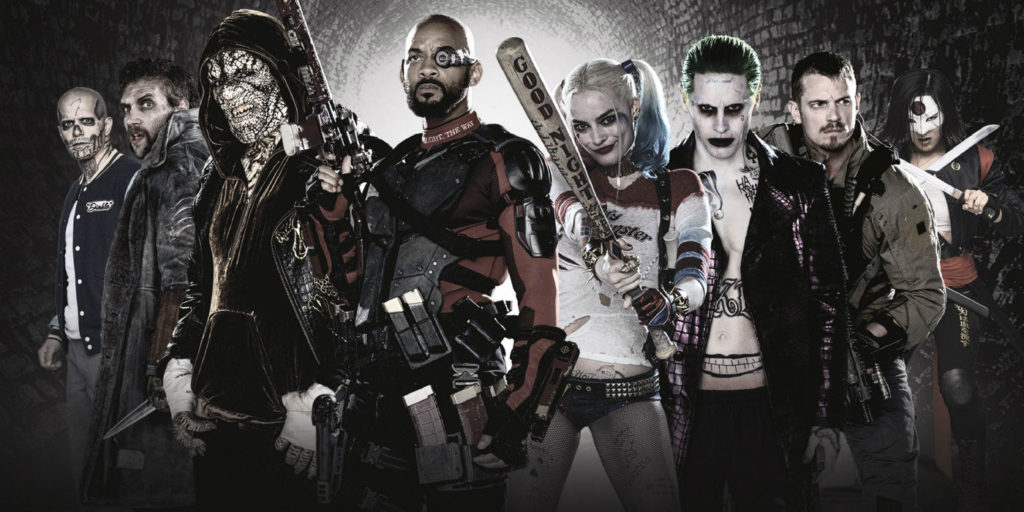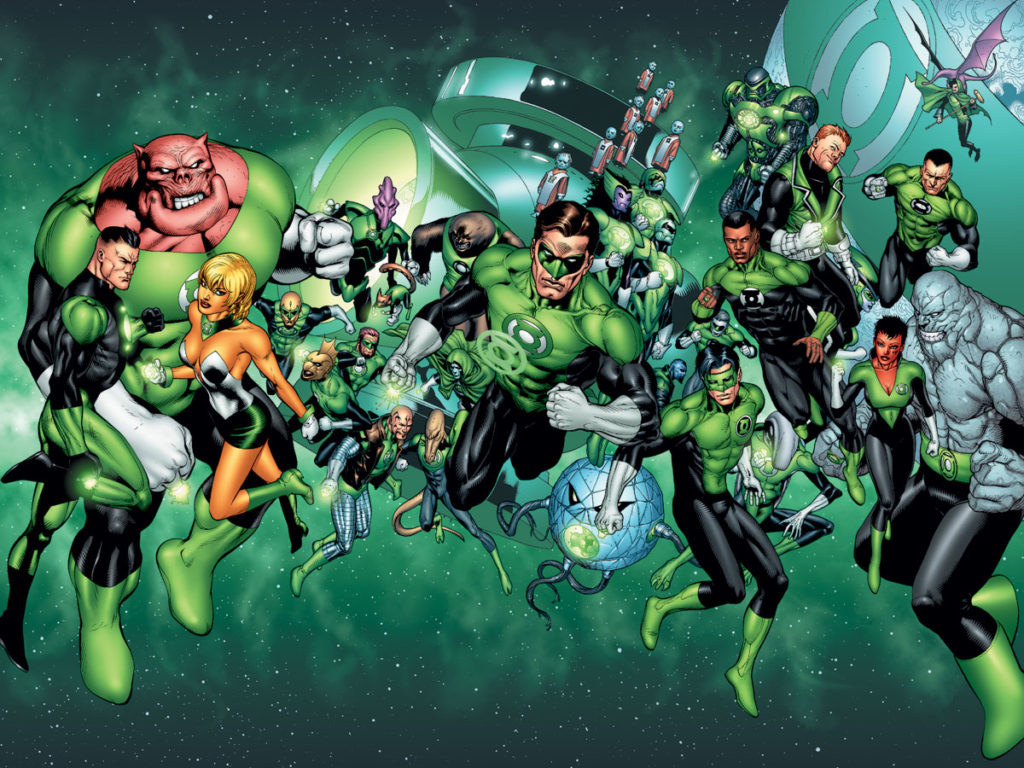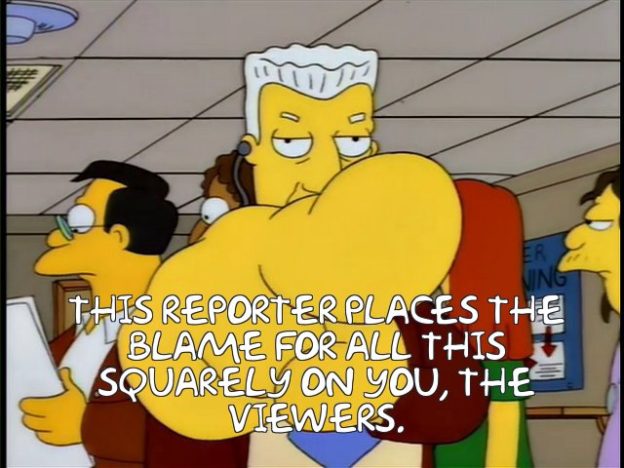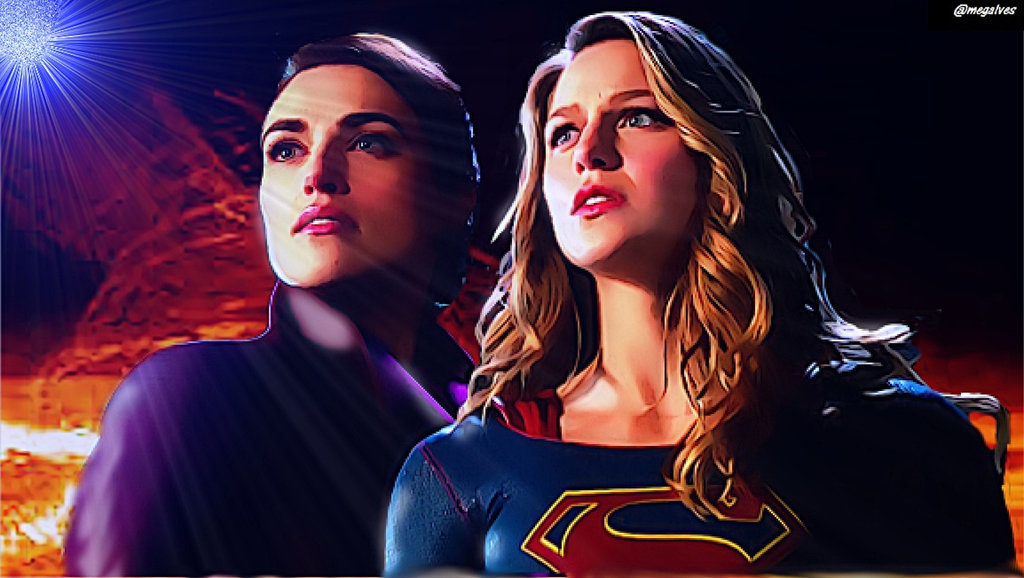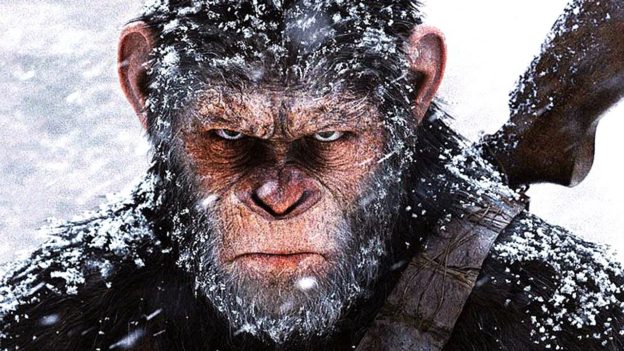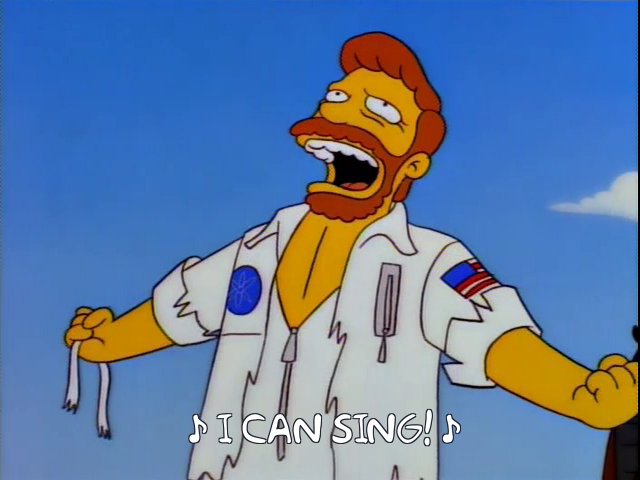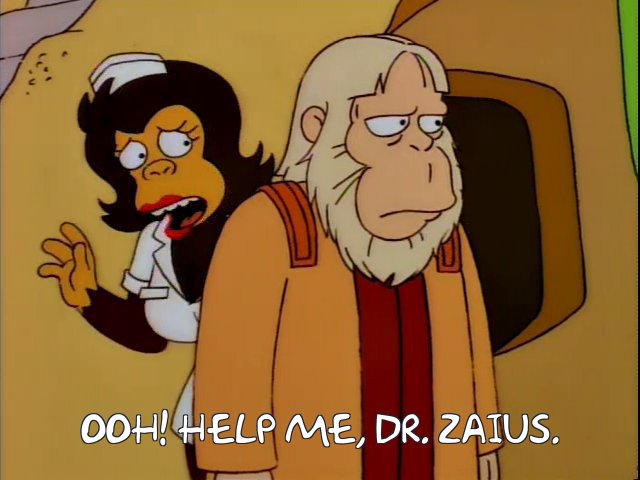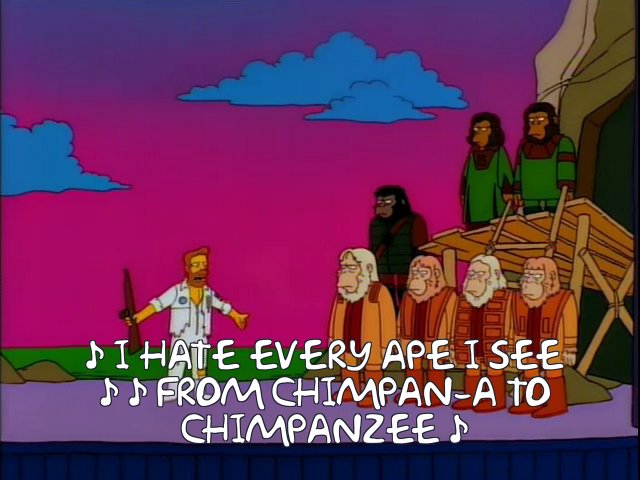Look, if I can spend eleven posts talking about The Office, I can probably manage a few about Doctor Who.
Anyone who knows me… or takes even one look around my living room… knows how much I love Doctor Who. Always have, as far back as I can remember. There’s a new Doctor on the horizon. The first female Doctor. This has some people wondering if it’s time to try out this show I love so much.
Well, that’s what I’m here for. Because when you love a show as much as I love Doctor Who, you have opinions.
These are mine.
Series One: “I’m The Doctor, by the way, what’s your name?”
Series one (“series” is British for “season,” and the way their TV shows work, a more apt description) was a miracle. A gift. Doctor Who had been off televisions, more or less, for almost twenty years. The Seventh Doctor (Sylvester McCoy) and Ace had wandered off, and that was it. Save for radio dramas. And the infamous American TV movie, an attempt to launch an American Doctor Who series… on Fox.
That feels like a bad match, network-wise, but in the dark years before Netflix and Amazon Prime it’s hard to think of a network that would be better.
And the weird thing is, as much as we disliked it at the time… enough that I’ve owned it on DVD for years, but still haven’t actually watched it since 1996… it actually serves as a bridge between the languidly paced cliffhanger serial that was old Who, and the more action-driven series it’s become.
So the first series had a daunting job ahead of it. They had to appeal to old-school fans, but also win over a new generation. A generation who might not be used to the BBC’s bargain-basement effects. But they did a decent job. In fact, I’d say a great job.
It’s easy to look down on series one, given that every series is an improvement on the one before it* until… look, series eight had its issues, I don’t deny that. But it is fun, and it’s charming, and it does a solid job of making you love its central characters, whose largest flaw is that they get a little overshadowed by their replacements.
*In my opinion, which is the one we’re listening to here.
The Doctor
Christopher Eccleston had the job of re-introducing TV’s favourite Time Lord. And while the Tennants and Smiths to come may have overshadowed him, that’s not his fault. His material was… slightly dodgy. His Doctor, when you pay attention, is actually pretty great.
A major theme of series one isn’t entirely apparent until you look back on it years later. But the hints are there. Nine is fresh out of the unspeakable, indescribable, and most certainly unfilmable horrors of the Time War. Right before meeting Rose, he (as far as he knows) wiped out his own species, burned his own homeworld, in the desperate hopes of stopping the last great Time War before it could end all of existence.
And that’s the Doctor Eccleston plays. A man haunted by his own deeds, still grappling with the trauma of unspeakable conflict ended with an unbearable price. He’s the last of the Time Lords, and the only way he can deal with that is to grab onto a new companion and run as fast as he can from adventure to adventure.
Nine has a pretty great sense of humour, to be sure, but if you watch closely, you notice something… it’s a defense mechanism. He’s never more jovial than when he’s covering up his own pain and sorrow. This means he’s thoroughly pleasant when he meets Rose, but that’s mostly because he’s freshly regenerated from his Time War self, as we can surmise from him apparently seeing his face for the first time in his second scene.
He’s also got a temper, and is swift to turn on any humans who let him down or seem to be serving a greater evil. When someone helping run a series of game shows that slaughter their contestants states they’re only doing their job, she gets a swift and cold “And with that sentence you’ve lost the right to talk to me.” On the other hand, show promise and he warms up to you. And in Dalek, he begins to shake the trauma of the Time War. He begins to heal, to walk the path away from destruction and towards becoming the everyone’s-best-pal Doctors that are Ten and Eleven.
This progression builds to a head in the season finale, when he finds himself confronted with the same choice that ended the Time War: burn a planet, kill billions of innocents, to end the Daleks. And his choice, in that moment, sums up Nine’s 13 episode journey. The Daleks ask… is he a coward, or a murderer?
“A coward,” he says, abandoning his plan. “Every time.”
Anti-Moffat fans are known to say “Never skip Nine,” out of respect for what Eccleston accomplished. On this, and this alone, we agree. As to Eleven going back on what Nine said, they can get stuffed. But that’s a future discussion.
The Companion
Unpopular opinion coming… Rose Tyler (Billie Piper) is the worst contemporary companion. Fight me.
She has her strengths, sure. She is, in her way, exactly what the PST-ridden Ninth Doctor needs. An innocent, filled with curiosity, wonder, and unshakable goodness. She pushes Nine to be a better man by refusing to accept he could be anything else. The Doctor refuses to burn the Earth to stop the Daleks because of Rose’s influence. A classic trope: the companion saves The Doctor so that The Doctor can save everyone. She’s also not without her moments of intuition.
That said.
She is not, when you get down to it, all that useful. For every monster she plays a key role in defeating, there’s a situation she makes actively worse, or an episode where she just collapses into a weepy mess. Mostly she’s there to coo over The Doctor while he saves the day, and improbably believes she represents her species at their best.
And then there’s her daddy issues.
She’s so obsessed with the father who died when she was a baby, she tears a hole in the fabric of time and nearly dooms the entire Earth. Say what you like about Clara Oswald, she never almost wiped out humanity because she was selfish and stupid about history.
Bad Wolf
Russell T. Davies, the man who brought Doctor Who back to television, didn’t really do season arcs. What he would do is have some sort of recurring reference that would finally pay off in the last two episodes of the series. In this case, it’s the words “Bad Wolf.”
The words haunt The Doctor and Rose, being spoken or appearing as text in nearly every episode, until in Boomtown they finally begin to notice and think it’s odd. Why is this happening? Frankly… it’s weird.
Turns out Rose, imbued in the finale with god-like powers by the Heart of the Tardis, planted those words everywhere she and The Doctor had been as a message to herself, that she could in fact get back to the future and save The Doctor.
Sounds… sounds kind of dodgy, doesn’t it? Well, it… mostly works. And the finale also pays off threads started in two of series one’s best episodes, Dalek and The Long Game, so there’s a sense of everything coming together.
That said… anti-Moffat people sometimes complain that Moffat relied on deus ex machina endings. In The Parting of the Ways, Rose gets godlike powers from the Tardis, uses them to magically fix all of their problems, and then The Doctor makes her all better with a kiss.
So if deus ex machinas bother you in the Moffat years, I have to ask what the Hell show you were watching up until then.
The Supporting Cast
The revival of Doctor Who introduced a new element that the classic series never really had: the idea that The Doctor’s companions have friends and family back home that they want to keep in touch with. Normally a companion would get swept up (or assigned to him by UNIT*), bounce around time and space with The Doctor, and eventually get dropped off somewhere to live their post-Tardis life (or, in one case… not). Well, except for Jon Pertwee’s main companions, who didn’t get to travel much.
But Rose Tyler has a home, and she even chooses to check in with it now and again, which allows Russell T. Davies to launch his favourite recurring theme: Everyone’s Mother is Awful.
That’s… I’m not saying that. I don’t even agree with that. My mother isn’t awful, yours probably isn’t either. But if you’re a companion to a Davies-era Doctor, you’re probably unpleasant.
(If you’re the mother of a Moffat-era companion, you’re probably dead. Neither trend is ideal.)
So. Jackie Tyler.
Rose’s overbearing mother turns up no less than six times over the first series, and she’s a nuisance in five of them. Overprotective, over talkative, and we see where Rose gets her weepiness. Jackie Tyler represents, personifies the humdrum, empty life that Rose is trying to escape. There might be real love between the Tyler women, but the one good thing she does in series one is help Rose leave again in the finale.
But we also see where Rose gets her “take no crap from man, god, or Dalek” attitude from, because if her daughter’s in danger, she’ll take no crap from a Time Lord. Which rarely accomplishes anything, and in fact at one point puts the whole world in danger, but still?
And then we have Mickey Smith. Known at times as “Mickey the Idiot,” he actually deserves a bit more respect than the show cares to give him. Mickey is Rose’s kind of useless boyfriend, who she quickly and happily abandons to see all of time and space. This… damages his life. A lot. Mickey never fully gets over Rose, but also learns that he’ll never really have a key place in her life. She’ll always run off with The Doctor, but lord save him, he’ll still come running when she calls.
Mickey is a prototype for a later, better companion. He exists to not be caught up in The Doctor’s aura, to never fall for his charms, to be the first to point out the damage he’s capable of leaving in his wake. Trouble is, he mostly just comes across as whiny and jealous. But he still has his uses. In Rose, he’s Rose Tyler’s boat anchor. By World War III, he’s learning to hack global defense agencies. But mostly he’s just here to be angry that Rose will never choose him over The Doctor.
And there’s one more of note, but we’ll get to him in a minute.
*Unified Intelligence Taskforce, the UN organization that deals with all these alien invasions and whatnot. They’ll come up again.
The Monsters: Good, Bad, and Ugly
The Big Bad: They waste little time (five episodes, to be precise) before getting to the biggest bads in Doctor Who history… the Daleks. They hang a lampshade on all the easily mockable aspects of the classic pepper pots of death… having a plunger for an arm, being seemingly unable to handle stairs… and then push past them. The plunger arm kills a guy, and with post-80s effects, making a Dalek fly is easy enough. One Dalek slaughters his way through dozens of armed guards. And then they dare you to feel empathy for the perfect killing machine.
The Good: The Editor in The Long Game is a top-notch example of a frequent type of Who villain, the human all too willing to sell out his species for power and profit. And he’s played by Simon Pegg, who’s delightful in the role. See also Dalek’s human villain, Henry van Statten.
And future showrunner Steven Moffat shows how he can create classic, creepy villains with just a few flourishes. The Empty Child’s titular villain, a small boy in a gasmask stalking the homeless children of Blitz-era London, is damned unsettling.
The Bad: The goddamn Slitheen. I’ll come back to that.
The Gelf, aliens that use gas to inhabit the bodies of the dead, aren’t really anything to write home about.
The Ugly: Man those bat/vulture aliens from Father’s Day are some bad, cheap CG. Good thing that episode’s real villain is Rose Tyler’s daddy issues.
High Point
The final five minutes of The Doctor Dances are, without question, the most beautiful five minutes of the year. One of the most beautiful sequences of the show’s first five years, frankly. And the road to that point is a fantastic two-parter.
See, Steven Moffat didn’t get asked to replace Davies as showrunner for no reason. During the Davies era, Moffat would come in, write one story per series, and it would be the best one. Or one of them, anyway. In this case, it’s The Empty Child and The Doctor Dances.
We’ve got a brilliant monster in the titular Empty Child (the phrase “Are you my Mummy?” will freak you right out), some perfect subtle scares, a heartbreaking and then heart lifting plot, and the best lines of the year. Anything The Doctor has to say about bananas is gold.
And if that’s not enough, it’s also the first appearance of John Barrowman as time-travelling con artist turned defender of mankind, Captain Jack Harkness. The omni-sexual time traveller out for redemption is a fan-favourite, and you’ll love him too. I mean, he was the first character to get a spinoff for a reason.
Low Point
The goddamn Slitheen.
Aliens of London and World War Three have their moments. Harriet Jones, MP, is a fun and ultimately important character, and this is her debut. Also, Rose’s mother finds out what exactly Rose has been up to, when an attempt to stop off at home 12 hours after they first left goes askew and they discover Rose has been presumed missing for 12 months.
However.
The A-plot to this two parter is simply insufferable. The Slitheen, a family of murderous alien criminals, seize control of the UK in an attempt to nuke the Earth and sell off the slag. All with shit-eating grins and an overwhelming amount of fart jokes. They are actively painful to watch. As a result, this two-parter is virtually irredeemable.
I hate it when the annoying villains get two-parters. That’s two episodes of Nine’s very short run they burned on this train wreck. The Slitheen got one more (admittedly improved) appearance later in the year, and then were banished to the even more kid-friendly* spinoff The Sarah Jane Adventures.
*Yes, despite how obsessed adults get with this show, and despite the body count, in the UK it is still largely considered children’s programming. Go figure.
Highlights?
It’s remarkable how much the show improves the second you get away from the Slitheen. Dalek, The Long Game, those are classics by any measure.
Rose is probably still the second best introductory episode ever (my favourite is yet to come), because, well, it had to be. But those first few lines from The Doctor sold me on Nine right away, from his simple intro line (“Run!”) to actually introducing himself (“Nice to meet you, Rose. Run for your life!”). It was a perfect, high-speed into to the central character.
Skippables?
Look, I tried this time, I really tried, to get through the whole first series without skipping anything. But I can’t. I just can’t. The Slitheen are awful. Smug, campy, farty, painful to watch. I can’t go back.
And if the early production values annoy you, or the high camp levels, there is a streamlined approach I’ve recommended in the past. Skip from The End of the World all the way to Dalek. All you’ll miss in The Unquiet Dead is the first of a seven-series long tradition of historical guest stars and a meta-joke that comes from one of the cast turning up in the Who-spinoff Torchwood a couple of years down the line.
You can skip Father’s Day if you like. I think the emotional payoff works, but it is most defintely Rose Tyler at her very worst. And if you’ve skipped Aliens of London and World War Three to avoid the goddamn Slitheen, you may as well also skip Boomtown. The Slitheen in question has improved as a villain, she has an amusing philosophical showdown with The Doctor, Captain Jack is in it, and the resolution sets up something kind of important, so it’s hardly all bad. However, it’s still a Slitheen episode, and the B plot is a relatively empty and meaningless character beat for Mickey and Rose, so it’s not all great either. If your goal is to reach the greener pastures of David Tennant’s run… well, you can always come back later.
Parting Thoughts
Notable guest stars: Not something old-school Who was known for (save for a 70s cameo by John Cleese), but new Who manages a few. Simon Pegg is the most notable in The Long Game, which also features Black Books and Green Wing‘s Tamsin Grieg. Penelope Wilton of Shaun of the Dead and The Best Exotic Marigold Hotel is backbench MP Harriet Jones, who we’ll be seeing more of. And notable British actor Simon Callow is the first historical guest star, Charles Dickens, in The Unquiet Dead.
Perhaps the very best explanation for how British The Doctor is comes in the first episode:
“If you’re an alien, how come you sound like you’re from the north?”
“Lots of planets have a north!”
“Bananas are good.”
The End of the World introduces the Face of Boe. He’s gonna be important.
Rose hints at visiting other worlds, but they must all be off-camera. Series one never makes it further away from Earth than orbit.
Doctor Quote of the Series: “Fantastic!”
Saddest moment: Heartbreak is inevitable on this show, but the hardest hits come from Pete Tyler’s big sacrifice in Father’s Day and the end of Nine in The Parting of the Ways.
Next time… welcome to the Tardis, Mr. Tennant. It’s going to be brilliant.

